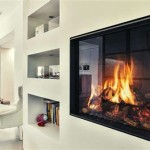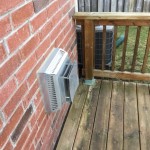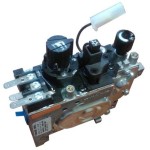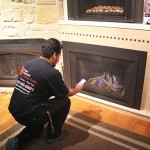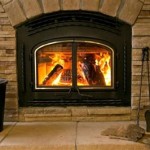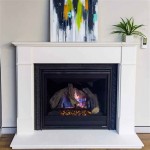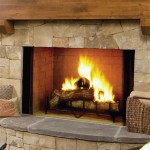Enhance Your Home with the Essential Aspects of an Add-On Gas Fireplace
An add-on gas fireplace offers unparalleled warmth, ambiance, and value to any room. Whether you're looking to create a cozy atmosphere or supplement your heating system, understanding the essential aspects of these fireplaces is crucial for making an informed decision.
Types of Add-On Gas Fireplaces
Add-on gas fireplaces come in various types, including:
- Ventless: These fireplaces do not require a chimney or venting system, making them ideal for spaces where traditional fireplaces are impractical.
- Direct Vent: Direct vent fireplaces draw combustion air from outside and exhaust fumes through a vent pipe, providing a more efficient and eco-friendly option.
- Natural Vent: Natural vent fireplaces use an existing chimney or flue to vent combustion gases, requiring minimal modification to your home.
Fuel Source and Efficiency
Add-on gas fireplaces typically use natural gas or propane as their fuel source. While natural gas is more widely available, propane is more portable and suitable for areas without piped gas access. The efficiency of these fireplaces varies, with higher-rated units offering greater heat output and lower gas consumption.
Design and Customization
Modern add-on gas fireplaces come in a range of styles and finishes to complement any home decor. From traditional to contemporary, you can choose from various trims, mantels, and log sets to create a fireplace that matches your aesthetic preferences.
Heat Output and Heating Capacity
The heat output of an add-on gas fireplace is measured in British Thermal Units (BTUs). Higher BTU ratings indicate greater heat production. Consider the size of the room you want to heat and the desired temperature to select a fireplace with adequate heating capacity.
Safety Features and Controls
Safety is paramount with gas fireplaces. Look for units equipped with safety features such as oxygen depletion sensors, flame sensors, and automatic shut-off mechanisms. Additionally, opt for fireplaces with remote controls or wall-mounted thermostats for added convenience and temperature regulation.
Installation and Maintenance
Professional installation by a qualified technician is essential for the safe and efficient operation of an add-on gas fireplace. Regular maintenance, including annual inspections and cleaning, is also crucial to ensure optimal performance and longevity.
Benefits of an Add-On Gas Fireplace
Adding a gas fireplace to your home offers numerous benefits, including:
- Warmth and Ambiance: Gas fireplaces provide instant heat and create a cozy, inviting atmosphere.
- Energy Efficiency: Modern gas fireplaces are highly efficient, offering significant energy savings compared to traditional wood-burning fireplaces.
- Convenience and Control: Gas fireplaces ignite with the touch of a button and offer remote control or thermostat operation for effortless temperature regulation.
- Safety: With advanced safety features and automatic shut-off mechanisms, gas fireplaces are safer than wood-burning fireplaces.
- Value Enhancement: An add-on gas fireplace can increase the value and appeal of your home.
Conclusion
Choosing the right add-on gas fireplace for your home requires careful consideration of various aspects. By understanding the types, fuel source, efficiency, design, heating capacity, safety features, installation, and benefits, you can make an informed decision that will enhance the comfort, beauty, and value of your living space.

Adding A Gas Fireplace To An Existing Home Just Log Fires

How To Add A Gas Fireplace Whilst Retaining Your Home S Character
10 Reasons To Add A Gas Fireplace Your Home Heat Glo
10 Reasons To Add A Gas Fireplace Your Home Heat Glo

Tips For Adding A Gas Fireplace To Your Home St Louis Hvac

I Built A Fireplace Easier Than Thought

Gas Fireplace Inserts Fireplacesdirect Com

How To Install A Gas Fireplace Diy Built In

How To Install A Gas Fireplace Diy Built In

How To Select And Install A Gas Fireplace Log Set Fireplaces Direct Learning Center

